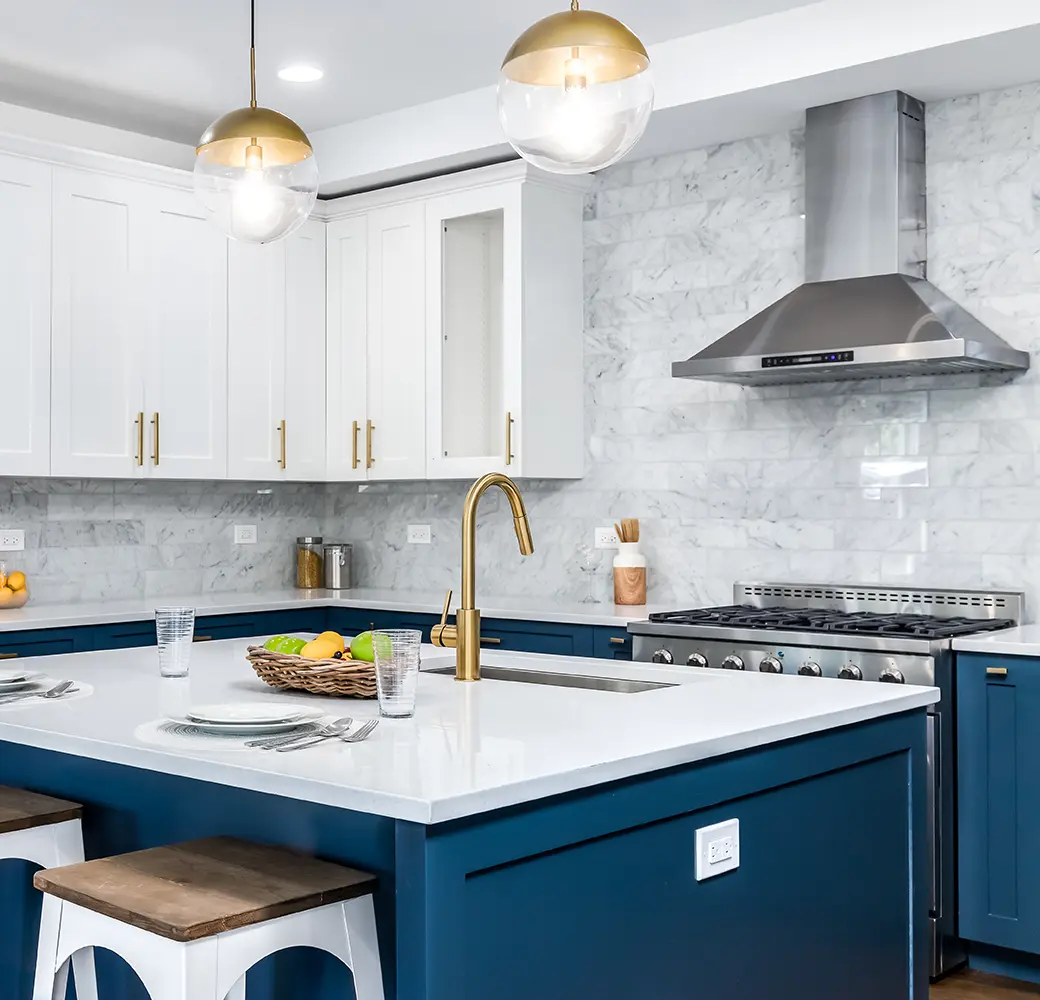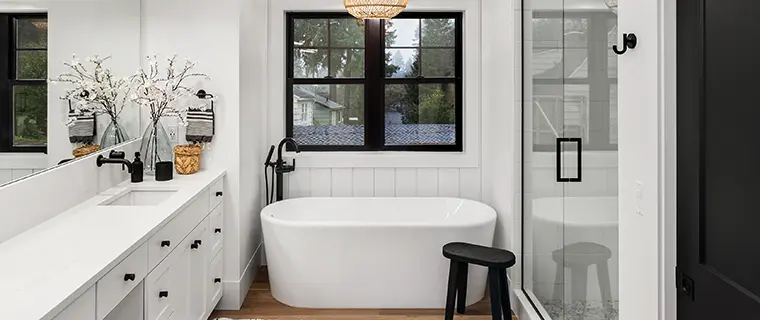Whether you’re updating your home for comfort, safety, or to simply increase its resale value, it can cost a pretty penny. While experts say you can expect to recoup, on average, 56% of a renovation’s cost, the amount varies widely among projects.
Since modern families spend most of their time in the kitchen, updating its functionality is a popular investment. Minor remodels are estimated to pay an 81% return, while higher-end remodels are closer to 59%. Whichever you choose, it’s important to think about a few things before you give your contractor the go ahead:
Your timeframe
How long do you plan to stay in your home? If it’s less than five years, keep your renovation costs at a minimum. But, if it’s longer than five years, give more thought to what would make it more comfortable for you and your family. Spending a little more now and being able to enjoy it for a considerable amount of time in the future may justify a bigger budget. While you may recoup less of its cost, the value of your enjoyment is worth something, too.
Your neighborhood
You don’t want to have the most expensive house in the hood, so a top-of-the-line kitchen in a modest neighborhood might be a mistake. While you want a quality remodel that improves the value of your home, it’s critical not to over-improve so that it significantly sets you apart from the rest of the neighborhood.
Your priorities
Making a list of your wants and needs will help you decide where to spend your money. You should choose quality cabinets and appliances, but might think twice about a wine fridge. Is crown molding a must? Do you absolutely need a double oven and a warming drawer? Remember that buyers won’t pay extra for “niceties” so unless they’re important to the overall functionality of the kitchen, they may need to be closer to the bottom of your list. Your priorities list will also come in handy if you run into some unexpected expenses and need to revise some choices or remove some improvements from the project.
Your budget
In any home renovation, it’s critical to set a budget and stick to it. Remodels have the potential to cost more than you anticipated, but without a spending limit, you’re almost guaranteed to be overextended. As a general rule, labor will account for 20% of your project cost, Allow 35% for cabinets, 20% for appliances, and 5% for fixtures. The remaining 20% should be earmarked for other items, including unexpected issues that need to be resolved.
To keep your budget as low as possible, you may be able to handle some of the prep work yourself. We’ve all seen Fixer Upper—there’s no reason you couldn’t remove the cabinets, pull up the floor, and remove the appliances instead of paying a contractor to do it.
You’ll also want to keep a spreadsheet of all your expenses and check-in with the contractor regularly. While they should keep you informed of any overages, you don’t want to be caught off guard.
Your finances
Consider how you’ll pay for your kitchen remodel. You may have money in savings or might be thinking about a home equity loan. You might also consider refinancing your home or even applying for a personal loan. Whichever you decide, be sure to have the funds available at the start of the project. You’ll likely need to pay your contractor for materials and pay for labor as the project progresses.
If your kitchen will be under construction, don’t forget to factor in the cost of eating out and maybe even another place to stay until the renovation is completed.
A kitchen renovation can bring new excitement into your home, but it can also be stressful. Create a budget, follow the plan, and closely monitor the project’s progress. In the end, you’ll have a kitchen that works for you and your family and the funds to comfortably afford it.






This was very helpful how can I learn more about refinancing?
Katherine — You can learn more about refinancing here or reach out to one of our loan experts.